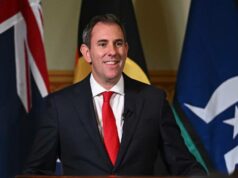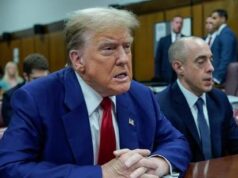President’s India visit : opportunities and dogmatism

By Ranga Jayasuriya
Why Sri Lanka remains a country that lives in the past. Dogmatism blinds its present and squanders its future
During his last week’s visit to New Delhi, President Ranil Wickremesinghe signed a host of agreements, which, if followed up earnestly, would interlock the Sri Lankan economy with the world’s fastest-growing large economy.
Proposed collaboration in renewable energy, bidirectional energy trade, ports and acceptance of the Indian Rupee as a designated foreign currency would foster interdependence and make Sri Lanka a more palatable destination for Indian investment.
Though India may not be the most laissez-faire economy- not unusual for a country that was shackled by the Licence Raj for four decades, the spillover in even a smaller measure of the newfound economic dynamism of India could simply turbo-charge the Sri Lankan economy.
For an economy that is too small and uncompetitive to be enticing for global business, enhanced economic interdependence with India provides a way out of the prevailing stagnation. That could also be the prelude to greater economic openness and increased competitiveness.
Interestingly, India’s much larger bundle of geopolitical interests in its neighbourhood should make it overlook at least some of the deficiencies of the Sri Lankan economy.
In contrast, the same fallacies are a turn-off for most other large States and their multinationals. In fact, so much for all the hyperbole of advantages emanating from Sri Lanka’s strategic position that you hear in conference circles, the economic involvement in Sri Lanka by the rest of the major states is designed as a nominal presence not to miss out against the growing Chinese power.
Opportunity
Rising India should be viewed as an elephantine opportunity. Instead, the usual local reaction to the outcome of the President’s visit has been one of predictable dogmatism.
Sri Lanka also has other parochial national priorities which have often blinded or distracted itself from the existential realities of a grossly underperforming and insular problem. For instance, on his return, the President was seen meeting a group of Buddhist high priests, who had been critical of the perceived affront of a government’s neglect of Buddhist ruins. Never mind, this country is in deep economic distress, where average folks struggle to make ends meet.
These two episodes are microscopic of Sri Lanka’s opportunities and challenges, its existential realities and misplaced priorities.
Sri Lanka is a country that lives in the past. Dogmatism blinds its present and squanders its future.
The same fallacies prevent Sri Lanka from exploiting this one-in-a-generation opportunity of rising India.
World powers and multinationals bet on India to be the next engine of global economic growth.
The Indian economy itself is enjoying a historical growth opportunity, propelled by the right mixture of the accumulated effect of domestic economic modernization and favourable geopolitical tailwinds.
India would be the biggest beneficiary as the West is de-risking from China and building geopolitical alliances to counter Chinese power.
In most accounts, the Indian economy is now at the threshold of an astonishing economic rise China undertook beginning in the early 2000s and lasted for the next two decades.
As the Chinese experience would reveal, the newfound riches of such a momentous economic transformation would spill beyond its borders, building supply chains and reaching out to its neighbours. Japan’s industrialization spilt into Korea and Taiwan, and most recently, China-centric supply chains extended from the mainland to all across East and South East Asia.
Sri Lanka, better integrated into the Indian economy, would be in a better position to ride the wave of India’s growth.
Catalyst
The President’s visit should be hailed for exploring that opportunity.
In fact, agreements or Memorandums of Understanding that Mr Wickremesinghe entered in New Delhi are not new. Much of that has been discussed for over a decade but did not progress beyond the concept papers.
For instance, the joint development of Trincomalee as a Regional Economic and Energy Hub has been discussed since 2016. A Singaporean firm made a blueprint, and Japan was also roped in as a partner. However, Tokyo could well have lost appetite after Gotabaya Rajapaksa’s snub of suspending the Japan-funded Colombo Light Railway project.
The joint development of the tank farm by the Ceylon Petroleum Cooperation and its Indian counterpart dates back to the same period, but little had been achieved on the ground. Joint ventures involving Sri Lankan and Indian SOEs have been uniquely slow-paced. A joint venture of a solar power project in Sampur has replaced an earlier plan for a coal power plant.
There are also ambitious plans, such as joint development of offshore wind and solar and exploration of green hydrogen, areas in which India has recently acquired expertise and capital. However, they also rely on the financial health of the Adani Group, which is already building a 500 MW wind power project in Mannar and Pooneryn.
Also, the proposal to connect the power grids of the two countries to enable bidirectional energy trade, if undertaken, would bring down the energy prices in Sri Lanka and undermine the ongoing behind-the-curtain power deals involving independent providers, who provide thermal-powered electricity at a cost of fortune.
That very prospect might also lead to opposition from parties with a vested interest; already, there are harpings on the loss of ‘energy independence.’
In addition, the proposed development of port infrastructure in Colombo, where Adani Group is building the West Terminal and Kankesanthurai, would increase the competitiveness of the Colombo port. The Indian stake in the Colombo port, which mainly relies on transhipment to regional Indian ports, would also provide a degree of certainty of the Colombo port’s core business.
Also, the two countries agreed to further talks on the Economic and Technology Cooperation Agreement (ETCA), which was agreed upon during the previous Yahapalanaya government, only to be discarded after the local professionals opposed it. Though repetition cannot be ruled out, ETCA, if implemented, would herald a new era for Sri Lanka’s information and technology industry, linking it with the Indian ICT industry with US$ 200 billion in annual exports.
Opportunism
However, Sri Lankan discourse about India- the type of opinion you are bombarded with in press conferences and by opinion makers-is one of parochial antiquity.
That is partly because most so-called local pundits, especially the vernacular type who have better access to the public domain, are archaic fools who have not shed their 1960s worldview.
The political types are crass opportunists. Conspiracy theories fill the resultant intellectual vacuum. Parliament opposition has alleged that it had been kept in the dark. The IUSF types who now have elevated themselves into the opinion makers bemoan the coming Indian encroachment, and other fellow travellers allege the sale of national assets. Anura Kumara Dissanayake dismisses potentially multibillion dollars worth of investment in renewable energy because ‘we do not need investment in rupees.’
As usual, a multitude of charlatans has a field day, tearing into anything that could lift the country out of its long-beset economic ills. Some others want elections so that a new government can decide the policy. However, populist governments in this country have done precious little for economic modernization.
Sri Lanka should make rising India a pillar of its economic calculations and recalibrate itself to piggyback on Indian growth. That should also be part of a much larger liberalization agenda which would cut the burden of the bloated government and SOE, and upgrade human capital, most importantly by broad-basing access to higher education.
A better-educated youth population would also be less amenable to self-defeatist garbage that dominates public discourse.
Source : Daily Mirror



